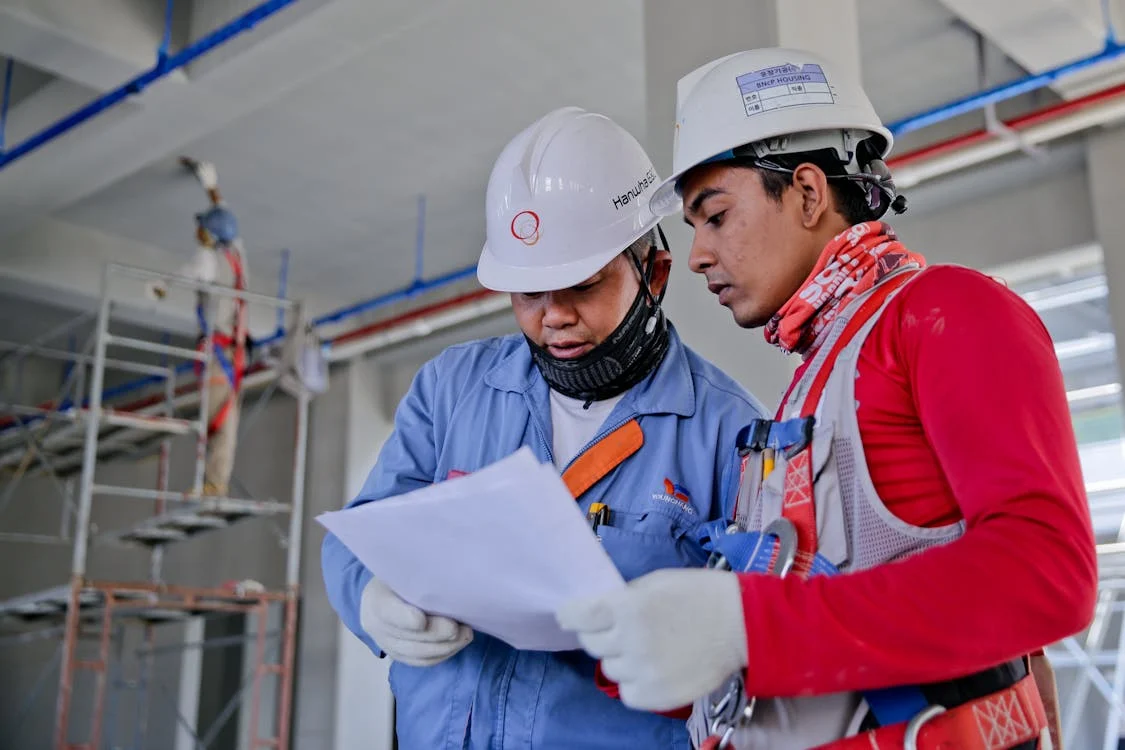From leaky faucets to clogged drains, plumbing issues can wreak havoc on your home and disrupt your daily routine. While some problems may seem minor, others can lead to costly repairs and extensive damage if left unchecked.
That’s where plumbing inspections come in. In this article, we’ll explore the importance of plumbing inspections in Dallas, when they’re necessary, and why they’re essential for maintaining a healthy and functional plumbing system.
Understanding the Importance of Plumbing Inspections
Plumbing inspections play a crucial role in ensuring the integrity and efficiency of your home’s plumbing system.
By conducting regular inspections, homeowners can identify potential issues early on and address them before they escalate into more significant problems. From detecting hidden leaks to assessing the condition of pipes and fixtures, inspections provide valuable insights into the overall health of your plumbing system. Additionally, plumbing inspections are essential for maintaining compliance with local building codes and regulations, especially when buying or selling a home.
Regular plumbing inspections can also help homeowners save money in the long run by preventing costly repairs and minimizing water waste. By identifying and repairing leaks, addressing drainage issues, and maintaining plumbing fixtures, homeowners can reduce their water bills and extend the lifespan of their plumbing system. Furthermore, plumbing inspections can enhance the safety and comfort of your home by identifying potential hazards such as gas leaks or faulty water heaters.
When to Schedule a Plumbing Inspection
Knowing when to schedule a plumbing inspection is crucial for maintaining the health and functionality of your plumbing system.
While routine inspections are recommended annually, there are certain situations where scheduling an inspection is especially important. For example, if you notice signs of water damage, such as wet spots on walls or ceilings, musty odors, or unusually high water bills, it’s essential to have your plumbing system inspected promptly. Similarly, if you’re experiencing frequent clogs, slow drainage, or fluctuations in water pressure, these could indicate underlying issues that require professional attention.
Homeowners should also consider scheduling a plumbing inspection before purchasing a new home or renovating an existing property.
A comprehensive inspection can reveal any existing plumbing problems or potential issues that may need to be addressed before moving forward with the purchase or renovation project. Additionally, scheduling regular inspections as part of your home maintenance routine can help prevent unexpected plumbing emergencies and costly repairs down the line.
The Role of Technology in Modern Plumbing Inspections
Technology has revolutionized the field of plumbing inspections, allowing for more efficient and accurate assessments of plumbing systems. One of the most significant advancements in plumbing inspection technology is the use of video cameras.
These specialized cameras can be inserted into pipes and sewer lines, allowing plumbers to visually inspect the system’s interior for any signs of damage, blockages, or leaks. By providing a real-time view of the plumbing system’s condition, video inspections enable plumbers to identify and address issues more effectively, saving time and minimizing disruption to homeowners.
Another technological innovation that has transformed plumbing inspections is using electronic leak detection devices. These devices use advanced sensors to detect the smallest leaks in pipes and fixtures, including those hidden behind walls or under floors.
By pinpointing the exact location of leaks, electronic leak detection devices enable plumbers to make targeted repairs, reducing the need for invasive and costly exploratory work. Additionally, electronic leak detection devices can help homeowners conserve water and prevent water damage by identifying leaks early on before they escalate into more significant problems.
In addition to video cameras and electronic leak detection devices, modern plumbing inspections often incorporate digital documentation and reporting tools. These tools allow plumbers to capture detailed images, videos, and measurements of the plumbing system during inspection.
By creating comprehensive digital records of the system’s condition, plumbers can provide homeowners with a clear understanding of any identified issues and the recommended course of action. Digital documentation also facilitates communication between plumbers, homeowners, and other stakeholders, ensuring everyone is on the same page regarding the status of the plumbing system and any necessary repairs or maintenance.
The Importance of Preventive Maintenance in Plumbing Inspections
Preventive maintenance plays a critical role in plumbing inspections, helping homeowners avoid costly repairs and unexpected emergencies. By proactively maintaining their plumbing systems, homeowners can identify and address minor issues before they escalate into more significant problems.
Preventive maintenance tasks may include cleaning drains, inspecting pipes for signs of corrosion or damage, testing water pressure, and checking for leaks around fixtures and appliances. By incorporating preventive maintenance into their home maintenance routine, homeowners can extend the lifespan of their plumbing system and minimize the risk of costly repairs or water damage.
Regular preventive maintenance also enables homeowners to stay ahead of potential plumbing issues and address them before they become emergencies.
By scheduling routine inspections and maintenance checks with a professional plumber, homeowners can identify and address any issues early on, preventing them from worsening over time. Additionally, preventive maintenance can help homeowners save money on their water bills by ensuring that their plumbing system is operating efficiently and without any leaks or inefficiencies.
In addition to saving money and preventing emergencies, preventive maintenance can also improve the overall comfort and safety of your home. By ensuring that your plumbing system is in good working order, you can avoid disruptions to your daily routine and enjoy peace of mind knowing that your home is protected against water damage and other plumbing-related issues. Preventive maintenance can also help preserve the value of your home by keeping its plumbing system in optimal condition, which is especially important if you plan to sell your home in the future.
The Future of Plumbing Inspections: Innovations and Trends to Watch
As technology advances, the future of plumbing inspections looks brighter than ever. One emerging trend in the field of plumbing inspections is the use of drones for aerial inspections of plumbing systems.
Drones equipped with specialized cameras and sensors can give plumbers a bird’s-eye view of the entire plumbing system, allowing them to quickly and accurately identify potential issues. Aerial inspections can be especially useful for large commercial properties, high-rise buildings, and other structures with extensive plumbing networks.
Another exciting development in plumbing inspection technology is the use of artificial intelligence (AI) and machine learning algorithms. These advanced algorithms can analyze data from plumbing inspections to identify patterns, trends, and potential issues that may not be immediately apparent to human inspectors.
By leveraging AI and machine learning, plumbers can make more informed decisions about the condition of plumbing systems and recommend proactive maintenance measures to prevent future problems. Additionally, AI-powered predictive analytics can help homeowners anticipate and address potential plumbing issues before they occur, saving time and money in the long run.
In addition to technological advancements, there is also a growing emphasis on sustainability and eco-friendly practices in the field of plumbing inspections. Plumbers are increasingly using environmentally friendly materials and techniques to reduce water waste and minimize the environmental impact of plumbing systems.
From installing low-flow fixtures to retrofitting older plumbing systems with water-saving devices, plumbers are finding innovative ways to help homeowners conserve water and reduce their carbon footprint. As sustainability becomes a top priority for homeowners and businesses alike, expect to see more emphasis on eco-friendly plumbing inspections and practices in the years to come.
The Benefits of Professional Plumbing Inspections
While DIY plumbing inspections may seem cost-effective, hiring a professional plumber offers several advantages, like going ahead and buying into the services of the best Dallas plumbers.
Professional plumbers have the training, experience, and specialized equipment to conduct thorough inspections and identify potential issues accurately.
They can also provide expert recommendations for repairs or upgrades to improve the efficiency and longevity of your plumbing system. Additionally, professional plumbers can ensure that all work is performed safely and complies with local building codes and regulations, giving homeowners peace of mind knowing that their plumbing system is in good hands.
Conclusion
In conclusion, plumbing inspections are essential for maintaining your home’s plumbing system’s health, efficiency, and safety.
By scheduling regular inspections and addressing any issues promptly, homeowners can avoid costly repairs, minimize water waste, and ensure the longevity of their plumbing system. Whether you’re experiencing plumbing problems or simply want to stay ahead of potential issues, investing in a professional plumbing inspection is a wise decision that can save you time, money, and stress in the long run.






